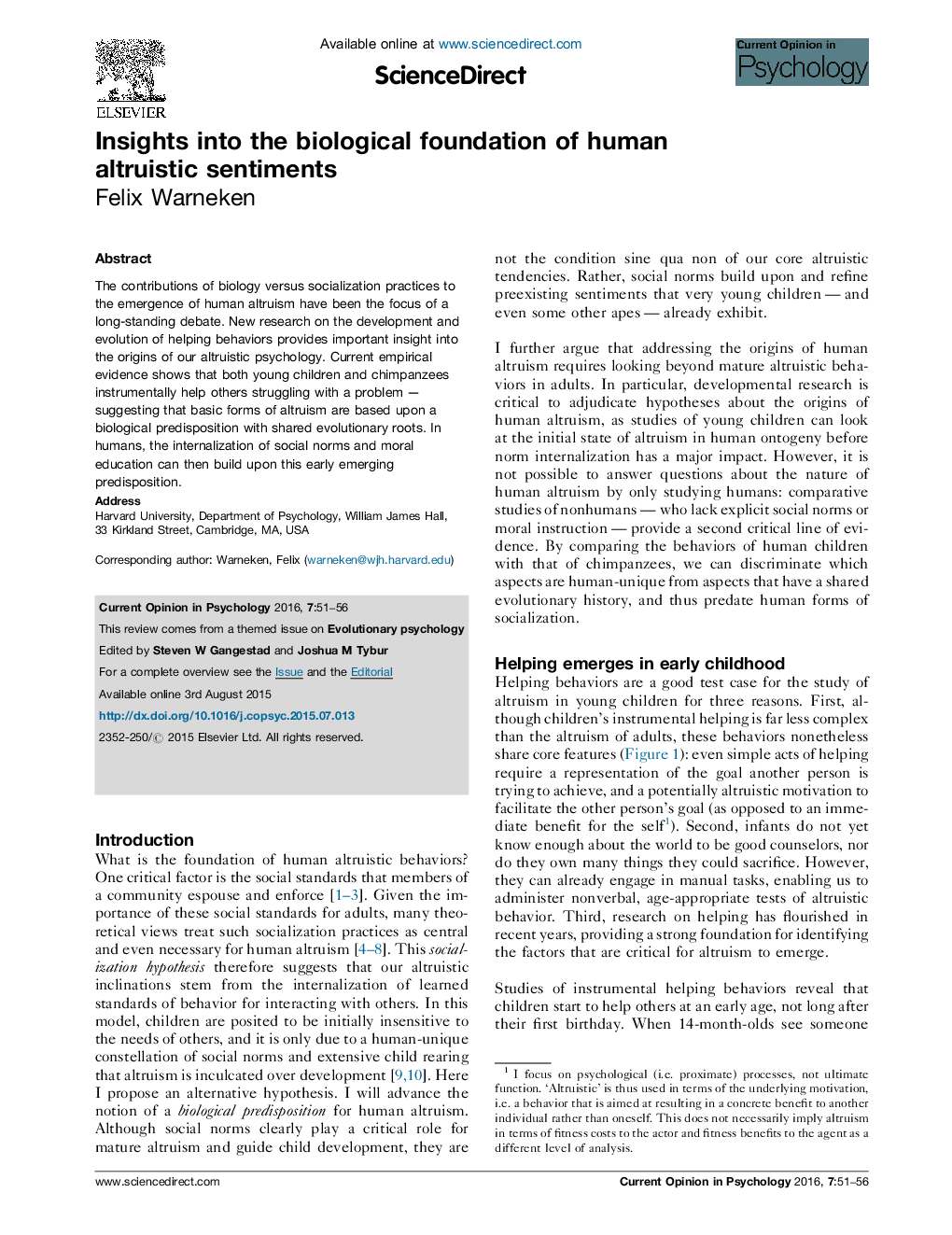| Article ID | Journal | Published Year | Pages | File Type |
|---|---|---|---|---|
| 879354 | Current Opinion in Psychology | 2016 | 6 Pages |
•Altruistic helping emerges in infancy.•Chimpanzees share basic altruistic tendencies with humans.•Comparative studies are essential for the study of human uniqueness.•Human socialization practices can build upon a biological predisposition for altruism.
The contributions of biology versus socialization practices to the emergence of human altruism have been the focus of a long-standing debate. New research on the development and evolution of helping behaviors provides important insight into the origins of our altruistic psychology. Current empirical evidence shows that both young children and chimpanzees instrumentally help others struggling with a problem — suggesting that basic forms of altruism are based upon a biological predisposition with shared evolutionary roots. In humans, the internalization of social norms and moral education can then build upon this early emerging predisposition.
Graphical abstractFigure optionsDownload full-size imageDownload as PowerPoint slide
